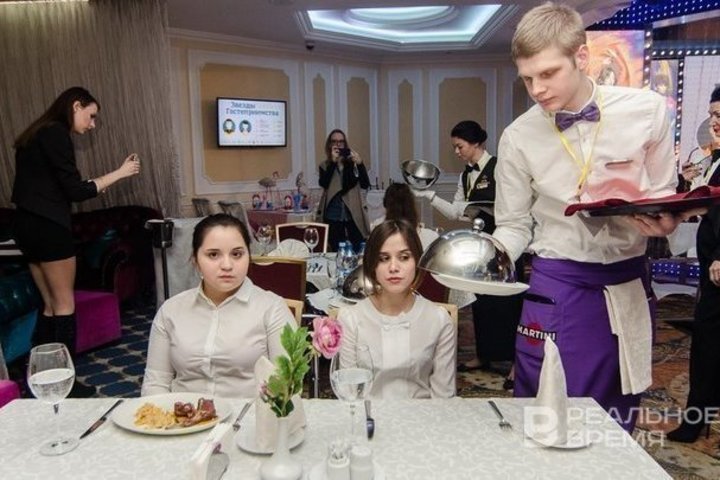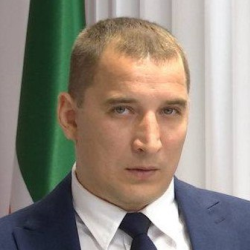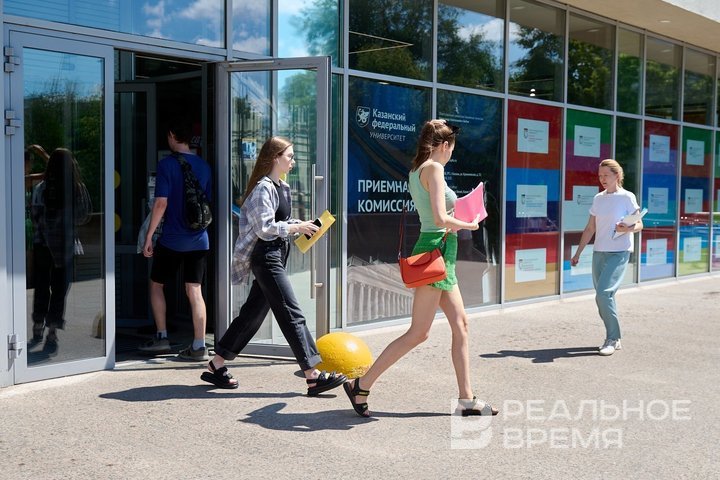Hoteliers and restaurateurs begin to hire schoolchildren in conditions of personnel shortage
Director of the Tatarstan Employment Centre — about the situation on the labour market and the most in-demand specialties

Starting next week, job fairs are held in all districts of Kazan. Earlier, Tatarstan participated in a similar action on an all-Russian scale, where more than 400 employers of the republic offered their vacancies — more than 17 thousand. The highest demand in the labour market is now felt in technical specialists — 65.1% of the total number of vacancies. Timur Mullin, the director of the Kazan Employment Centre, told Realnoe Vremya how Tatarstan companies cope with the shortage of personnel and what measures they resort to in solving the problem.
Jobs for schoolchildren
The shortage of personnel in certain sectors of Tatarstan, despite the historical minimum of unemployment in general, forced employers to consider high school students for their vacancies — from about 15-16 years old. Timur Mullin, the director of the Kazan Employment Centre, told Realnoe Vremya about this.
“This year we have focused on the first jobs for young people, that is, we have selected the target audience just for graduates of educational institutions and older schoolchildren for summer part-time work," he said, summing up the results of the All-Russian Job Fair.

The main employers for Kazan schoolchildren were representatives of the HoReCa segment. In particular, a well-known fast food chain hired about 40 children for a summer part-time job. Kazan hoteliers are also ready to offer jobs during the summer holidays. In total, about 900 students from the city's schools came to the fair. How many of them will go to their first job this summer will be known in the next two weeks — it is at this time that they will be interviewed.
“This trend is associated with a shortage of personnel. If last year employers somehow tried to close low-paying vacancies with low-skilled labour of adults, then this year they realised that the work needed to be redistributed. Now schoolchildren are quietly closing the positions of assistant maids or waiters," Timur Mullin said.

“Employers are trying to bring salaries to the market level”
In Tatarstan, the largest number of vacancies falls on the sphere of Production, Raw Materials, Agriculture — about 15% of all ads. Defence industry enterprises are in need of about 1.5 thousand specialists. According to Mullin, such a personnel shortage can be divided into two components.
“The first is a lack of competence, that is, there are no specialists with the necessary competencies. There are simply no highly specialised personnel on the market. We are working with educational organisations in such narrowly focused areas," explained the director of the employment centre.
The second component is the shortage of workers, the speaker continued. For the same money, people can find easier jobs. According to him, as a rule, people do not stay in production, and staff turnover is formed at enterprises.
“In general, employers are now trying to bring wages to the market level. But we must understand that, taking into account these two components, they will have a permanent, chronic shortage of personnel. They need to change the strategy of attracting specialists," Timur Mullin is convinced.
“Employer's passivity”
The first step towards increasing the attractiveness of working at enterprises, according to the interlocutor of the publication, is effective management of HR processes and work on the company's image. While federal labour market players are already actively implementing these ideas, local organisations are “not very ready yet”:

According to him, at the moment Tatarstan enterprises are not forming full-fledged personnel services that would be engaged in increasing the attractiveness of companies. The work of HR departments is focused on paperwork and interviews, not on expanding job search opportunities.
“The absence of a personnel service at the enterprise entails the passivity of the employer. First of all, it is important to work for the brand. I saw an interesting picture at the fair. At one of the fast food chains, there is an HR service. They had an interactive area, they financed their participation in this fair, and thought out their stand. So there was the biggest queue at their stand," Mullin gave an example.

The speaker added that now the employment centre, together with the KFU, is holding a strategic session for enterprises on management skills, which, among other things, relate to the formation of HR services:
“Now it will not be possible to work as in 2015, 2019, because the market is objectively changing. Now we need to fight for every person. How? Just to sell your brand.”
Some enterprises are already taking the first steps in this direction. In particular, the Kazan Employment Centre and the Kazan Aircraft Production Association signed an agreement on cooperation on the implementation of the HR implant project, that is, the introduction of an employee from the outside to solve the tasks of closing vacancies.
This service was introduced for the first time in Tatarstan for defense industry enterprises. According to the organisers, the tool will help employers expand the window of opportunity in finding employees and move from passive to active search.
University programmes
Speaking about the interactive zones of enterprises represented at the job fair, Timur Mullin separately noted SIBUR. At their stand, the company's employees distributed branded souvenirs. In total, the company announced 30 vacancies at the fair.
Earlier, in June, the rector of KNRTU, Yury Kazakov, announced new educational programmes for students as part of this year's admission campaign. For example, 11 master's degree programmes created under the auspices of SIBUR, Gazprom and Ammonia are launching this year.

“For SIBUR, this is a master's degree in polyolefin production and processing, which we are launching this year. In cooperation with Rostec, we have created the Arsenal programme, an educational and professional track for 17 defense industry enterprises. There is also a double degree programme: together with SIBUR, we are implementing a programme with China, recruiting chemical technologists and mechanics, two groups. The students study with us for two years, and in China — for two years. The programme is fully supported by the company, the scholarship of students is about 50 thousand rubles," Kazakov stressed.